How to Invest in Forex
Abstract: Invest in Forex by researching markets, choosing a reliable broker, understanding leverage, managing risk, and staying updated on global economic news. Trade wisely and consider demo accounts to practice.
Forex (foreign exchange) trading involves the buying and selling currencies to generate profit. This market operates decentralized, exchanging currencies in pairs, such as EUR/USD (Euro/US Dollar). In contrast to stock markets, the forex market remains accessible 24 hours a day, five days a week, due to the overlapping time zones of international financial hubs.

The foreign exchange market, or forex, stands as the largest and most liquid financial market globally. This notable liquidity presents several advantages for traders, particularly facilitating the ease of entering and exiting trades. The appeal of forex trading is significantly heightened by its accessibility and flexibility. Many novices begin their journey with demo accounts on user-friendly platforms such as MetaTrader 4 or through complimentary forex trading applications. Additionally, some individuals refine their trading abilities by engaging with mentors, participating in online forex trading courses, or subscribing to reputable forex signal providers. These signals, frequently disseminated via applications or telegram trading signal groups, assist novice traders in effortlessly identifying lucrative opportunities.
Mastering Forex Trading Terminology
Apart from using the word 'language,' you must be fluent in it. Having a good knowledge of the language used in Forex trading is crucial for your success.
Currency Pairs
Currencies are traded in pairs at all times. These pairs consist of two currencies: the base currency and the quote currency. For example, in the EUR/USD pair, you are buying euros and concurrently selling dollars. It is important to recognize major pairs, such as EUR/USD, and exotic pairs like USD/TRY since they will act differently.

Leverage and Lot Size
One of the things that makes forex different from other markets is the concept of leverage. This is what allows traders to control very large positions with small amounts of capital. For example, 100:1 leverage would let you control a $100,000 position with just $1,000. Of course, leverage is a double-edged sword because it magnifies both profits and losses. Most likely, you will need to use different tools such as a large calculator or a pip calculator profit to be able to determine how large your trades should be.
Forex Brokers and Platforms
Selecting the right forex broker is very important. Some brokers provide very high leverage, while others may provide low spreads or quick order execution. Ideally, beginners should select a broker offering a demo account, a forex trading simulator, or even better, a free forex trading app through which they can practice without any risk involved.
How to Choose a Forex Broker: Key Considerations
Selecting a broker isn't just about the lowest fees. You'll want to consider several factors:
Regulation: It is advisable to stick to regulated forex brokers, especially in the USA and the UK. If you're based in the US, offshore forex brokers including US clients are also an option but come with higher risks as they are less regulated.
Platform Usability: Choose a platform that offers the tool that you need, for example, MetaTrader 4, or any other popular software— such as TD Ameritrade's fx platform.
Minimum Deposit: In the case of fitting within a small budget, then find the brokers referred to as minimum deposit forex brokers, which cater to smaller traders.
It is advisable to read reviews about forex brokers and make a thorough comparison of different forex brokers to find one that best fits your style of trading and goals.
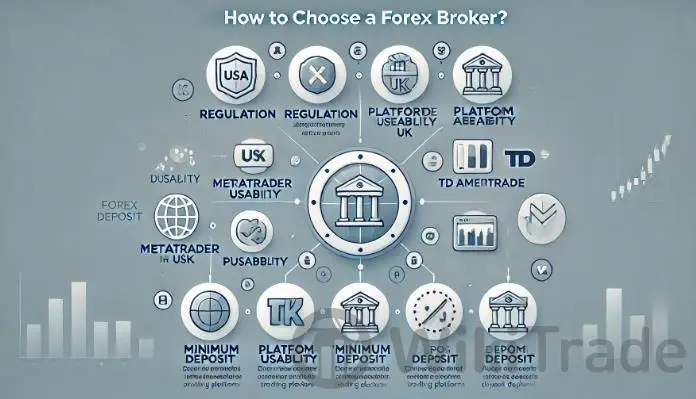
Creating a Simple Forex Trading Strategy
Day Trading versus Swing Trading
The first step newbies need to take is to determine the kind of trading style suitable for both their time schedule and temperament. Day trading consists of quick decisions and multiple trades in a day, while swing trading involves holding a position for some number of days to profit from price movements in the medium term.
Basic Forex Trading: Core Indicators
Several traders use different technical indicators to make their decisions. Some of the top trading indicators for beginners would be:
Moving Averages: This can assist you in finding the direction of the trend.
RSI: This will help you determine overbought or oversold conditions.
MACD: This is one of the more popular momentum indicators.
Once you have a handle on these tools, you can start to explore more advanced techniques, like trading with trendlines, or even develop your simple trading strategy.
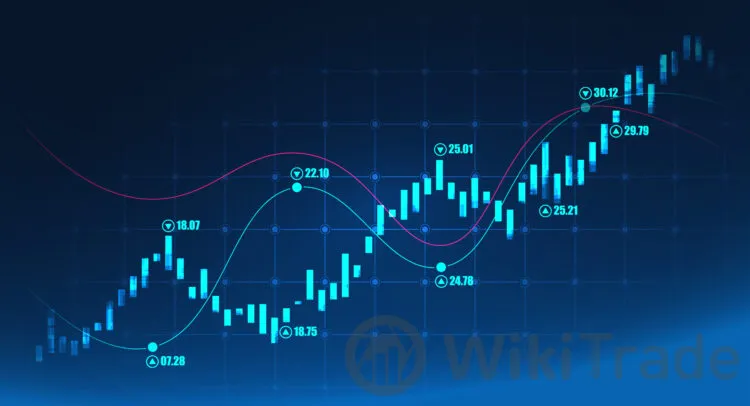
Forex Signals and FX Trade Ideas
If you're not comfortable trading by yourself yet, you can always subscribe to reliable forex signals. Websites such as Forexsignals.com and applications for forex signals on smartphones are helping people with real-time forex trade ideas. For beginners, this could be an excellent starting point as such signals generally are a result of detailed analysis of the market direction by professional traders. Many successful traders combine signals into their trading strategies.
Managing Risks in Forex Trading
Understanding Leverage and Margin Calls
Forex trading is attractive for sure, but it is extremely risky. The wise adage that comes with this is “the higher the risk, the higher the return.” If you use too much leverage you might get a margin call. This is when your broker calls you to ask for more funds to cover the He can also ask you to close all the losing positions. You must carefully manage your leverage and constantly monitor your margin to avoid this.
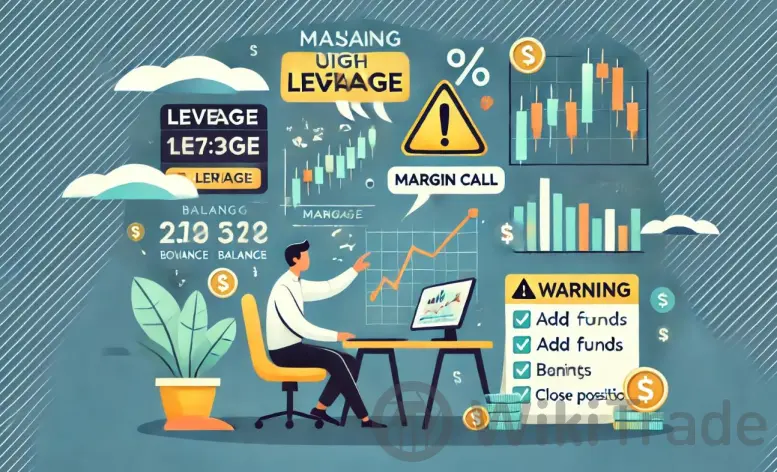
Margin Requirement:
All these factors (and any others you decide to use) need to lie at the core of your trading plan. You need to use:
Stop-loss orders: These can automatically close a trade for you.
Position sizing: under no condition should you risk more than 1-2% of your capital on any single trade.
Forex alerts: many platforms have this feature; they inform you whenever specific market conditions have been reached so that you may respond quickly.
What Determines the Price of a Currency?
Factors that can influence forex prices include, but are not limited to, the following:
Economic Data: Interest rates, inflation, and important information about employment serve as the leading aspects. Keeping an eye on forex fundamental analysis can allow you to better comprehend how these aspects influence the value of a specific currency.
Geopolitical Events: Elections, trade battles, and natural calamities can initiate large market moves.
Central Banks: Fundamental actions like rate cuts or monetary stimulus have a massive effect on the currency markets.
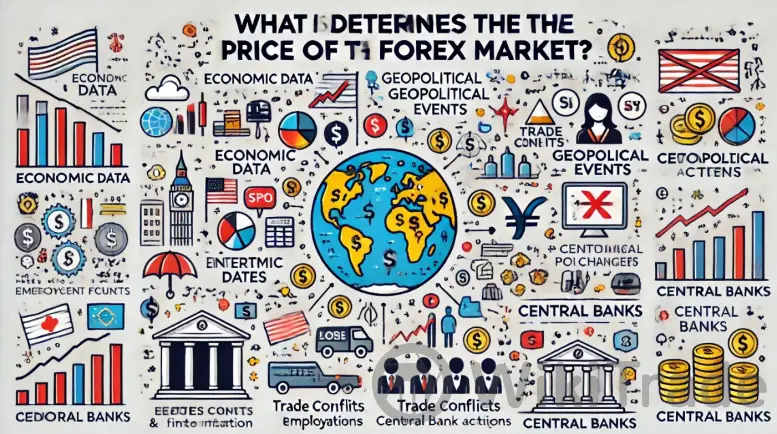
Designing Your Plan
Establishing Achievable Goals
Develop a high-probability trading plan that includes establishing achievable profit goals and not over-leveraging your account. The majority of new traders enter the game undercapitalized, and unrealistic profit targets have long since been the demise of Forex newbies. An effective trader is a businessperson first and foremost, and a business plan is the tool this new breed of trader uses to attain success.
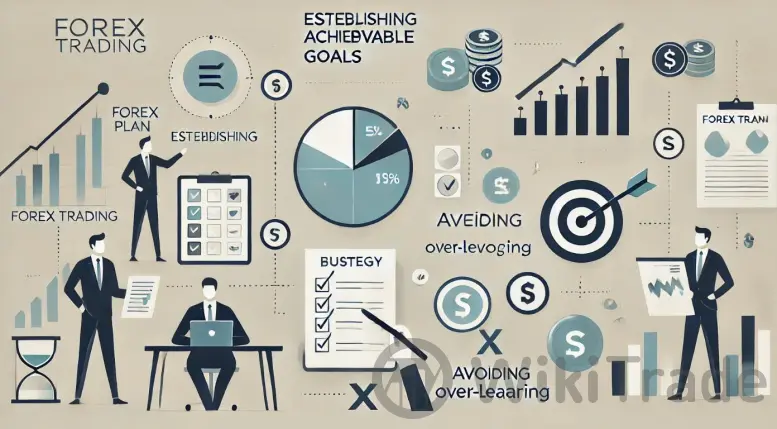
Integration of a Routine
From the most successful traders, you will learn that emphasis goes on discipline. The discipline includes keeping an FX journal, recording all trades conducted, going through each of them, and weighing the mistakes made to learn from them. With time, you keep improving your strategy and stop making the same errors.
Education
Continuing education remains important even after you have acquired the basics. Whether you are going to a trading school, attending webinars, or keeping up with the latest in the markets, being well-informed keeps you competitive in the dynamic world of forex.




Top News
 WikiTrade
WikiTrade WikiTrade
WikiTrade WikiTrade
WikiTrade WikiTrade
WikiTrade WikiTrade
WikiTrade WikiTrade
WikiTrade WikiTrade
WikiTrade WikiTrade
WikiTrade WikiTrade
WikiTrade WikiTrade
WikiTrade


